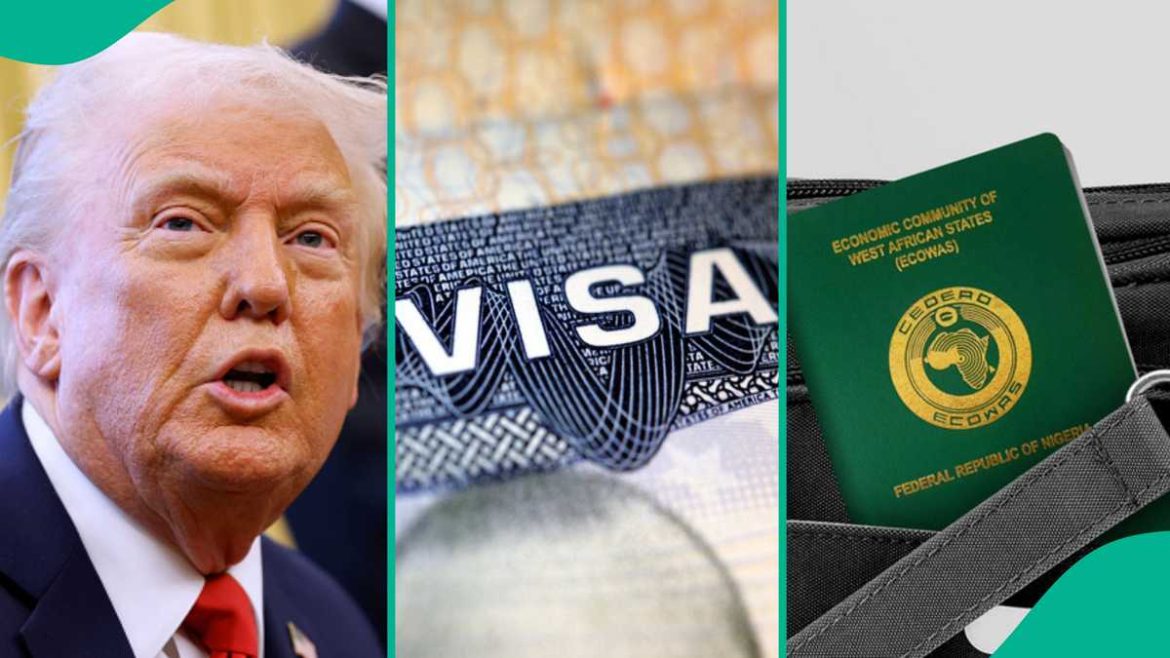1.2K
By Lizzy Chirkpi
Nigeria is facing a severe diplomatic challenge as the United States Government threatens to impose a visa ban on the West African nation and several other countries.
This looming threat comes with a strict 60-day deadline for affected countries to present clear action plans addressing the U.S government’s concerns. For Nigeria, this ultimatum is compounded by the failure of the Bola Tinubu administration, two years into its tenure, to name substantive ambassadors to key foreign missions, including the crucial posting in the United States.
This diplomatic vacuum raises serious questions about how Nigeria intends to engage with the U.S. to avert the impending ban, which could have far-reaching consequences for Nigerian citizens and the nation’s international standing.
The U.S. State Department’s recent memo, signed by Secretary of State Marco Rubio, outlines proposed restrictions on visa issuance and entry to the United States for citizens of Nigeria and dozens of other countries.
These proposed restrictions build upon previous travel bans and are part of a broader executive order focused on national security and immigration enforcement.
The memo further outlines concerns including failure to produce reliable identity or civil documents, high visa overstay rates, widespread government corruption and fraud, citizenship-by-investment schemes with minimal residency requirements, among others.
While these are broad categories, the absence of a fully empowered Ambassador in Washington D.C. directly affects Nigeria’s ability to effectively address these issues.
An Ambassador serves as the primary diplomatic representative of a nation, acting as the eyes, ears, and voice of the country abroad. They are critical for maintaining direct lines of communication, negotiating on behalf of their government, and presenting a coherent and compelling case for their nation’s interests.
With no Ambassador in place, Nigeria’s engagement with the U.S, it is left to lower-ranking diplomatic staff, who may lack the authourity, access, and political weight required to navigate such a high-stakes situation.
The implications of this prolonged diplomatic void extend far beyond the immediate threat of a visa ban. It is believed that beyond the visa ban, this action may hamper intelligence sharing, stifle foreign direct investment, and could cause foreign exchange scarcity.
In an increasingly interconnected and complex global security landscape, effective intelligence sharing with international partners, particularly powerful nations like the U.S., is paramount.
Ambassadors and their teams play a critical role in fostering trust, building relationships with host country intelligence agencies, and facilitating the exchange of vital information on transnational threats such as terrorism, cybercrime, and illicit financial flows. Without a top-level diplomatic presence, these crucial channels can be weakened, leaving Nigeria vulnerable and potentially hindering global efforts to combat shared security challenges.
The lack of ambassadorial leadership can lead to missed economic opportunities and a decline in much-needed capital inflow. Reports indicate that several international events and agreements have been scaled down or even cancelled due to Nigeria’s lack of ambassadorial leadership, underscoring the tangible economic impact.
With the 60-day countdown already underway, the pressure is mounting on the Nigerian government. While the Ministry of Foreign Affairs is likely engaging through established, albeit lower-level, channels, the absence of a substantive ambassador makes a direct, high-level intervention difficult. The government’s immediate priority must be to accelerate the appointment and deployment of qualified ambassadors to crucial missions, starting with the United States.
Speaking with our correspondent on Monday, Spokesperson of the Nigeria Ministry of Foreign Affairs, Mr Kimiebi Ebienfa cleared the air on the United States internal memo threatening to ban Visa issuance to Nigeria and other countries.
“We cannot react to an internal memo that has not been made official. It is only when it’s been made official that the Nigerian government will react to it. So for now, that is what I can say,” Ebienfa said.
Responding to why ambassadors have not been appointed to head the different foreign missions, he stated that “President Tinubu is taking his time so that he doesn’t make any mistakes.”



